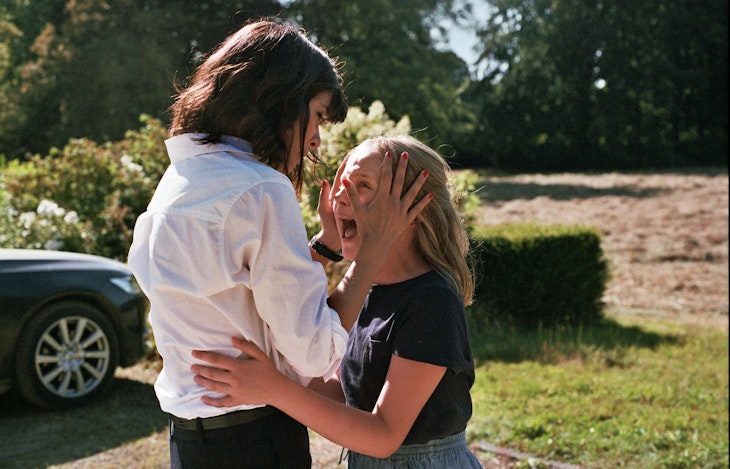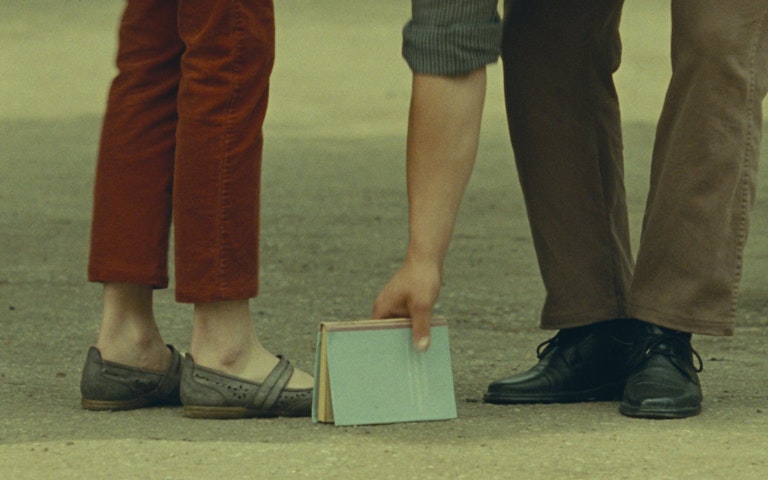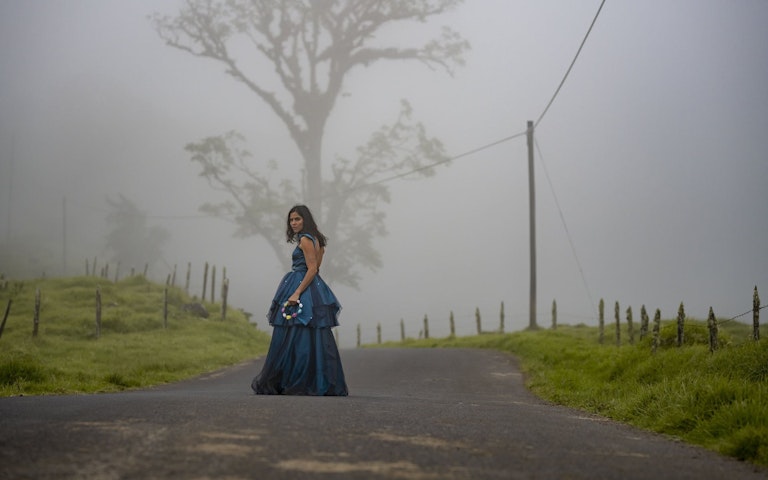Young Critics Review: Inexorable

The irresistible paradox, “What happens when an unstoppable force meets an immovable object?”, is an ideal scenario applied to a slow-burning potboiler. Dominos set up to fall for a desired perversion of wreckage; you want to look away but cannot. Fabrice du Welz wastes no time in Inexorable, setting the pieces in place as an abandoned stray arrives at the home of novelist Marcel Bellmer’s (Benoît Poelvoorde), an estate so massive it could house every abandoned dog in Belgium. Marcel has recently moved in with his wife, Jeanne (Mélanie Doutey), and daughter, Lucie (Janaina Halloy), after his wealthy father-in-law, a publishing mogul, passed away. Marcel is somewhat of a one-hit-wonder, far past the peak of his power and apparently needs thousands of square feet to reignite his literary prowess. His ability to perform, as a father, a husband and a lover, is entirely rooted in his past glory of being a Great Author and everything he does is entirely in service of chasing that version of himself. This vanity is resolute, unmoving, reflected in Poelvoorde’s formidable physique; a large man with a belly unfamiliar with refusal.
The new family pet runs off, Lucie shrieks in hysterics, the dog is found and returned by the titular, inexorable, Gloria. A past history is never revealed, other than being orphaned as a child. The vast disparity as a result (social, financial, mental) is among a reality the Bellmers cannot fathom—think Sandrine Bonnaire from Claude Chabrol’s La Cérémonie (1995). Gloria’s ambition to dismantle this family demands the kind of moxie only born out of such hardship. She immediately seizes the opportunity to infiltrate the fold upon presenting herself as a dog whisperer and is hired as a live-in helper. Her demeanour is cold and stoic, the kind of blankness that simultaneously allows Gloria to present whatever facade she needs and the Bellmers their own projections of what they want from the help: Lucie a sister, Jeanne a maid and Marcel a literary groupie. It’s the type of opaqueness that could only exist within the heightened comfort of extreme wealth. Gloria deftly pirouettes between all three based on their desires, all while sowing seeds of dissent. An early scene where she dispatches the family maid by framing her for theft is a red herring for Gloria’s motivations. These muddy provocations of intent initially provide a further sense of tonal dread, to great effect, until the narrative reveal mostly results in convolution regarding Gloria’s origins. Perpetual crimson lighting hangs over her, even while in the room with other people who don’t share the same exposure. It’s an uncanny effect where characters sharing the same space as her will be lit brighter, indicative of their seemingly more adjusted dispositions.
Inexorable is too generously derivative of a myriad of other films—La Cérémonie being the primary example—which wouldn’t necessarily be a problem if the execution of the family’s destruction wasn’t so calculated. The sabotage looks great but fails to elicit a thrilling glee when it’s visible several scenes ahead of schedule. The best scene in the movie is the only that’s unpredictable because it appears to have nothing to do with anything that’s happening, partially the reason it resonates so: Lucie performs a dancing show she’s prepared for friends and family. Adorned in a red dress she was forbidden to wear by her parents, the young lady convulses her body to the rhythm of harsh vocal screams, to the appall of all watching. The catharsis on display here is never delivered anywhere else in the film to the same poignancy, despite all parties involved carrying enough baggage to warrant their own guttural banshee screams.

Nazeeh Alghazawneh
My name is Nazeeh. I’m Palestinian. I drink my coffee black, just like my dear mother. Everything I write and do is for her. She is the only reason you’re reading these words. And any subsequent writing you may read from me is firmly rooted in the love she has for me. The people in your life that care about you are the only reason for doing anything.
Cinephiliac Moment
My greatest “cinephiliac moment” is watching and experiencing Jim Jarmusch's 1984 no-wave classic, Stranger Than Paradise. I had no idea that you could make a feature-length film about "nothing" so fascinating. Among the many wonderful scenes in it, one of my particular favs is when Eva goes to the movies with that guy and Willie & Eddie tag along and sit in-between them and Eva's “date” is tight!!!! lmao. The film also introduced me to Screamin' Jay Hawkins so yah very formative for young Nazeeh.
Top three anticipated FFG Films
- What Do We See When We Look at the Sky? by Alexandre Koberidze
- The Tsugua Diaries by Miguel Gomes, Maureen Fazendeiro
- El gran movimiento by Kiro Russo


